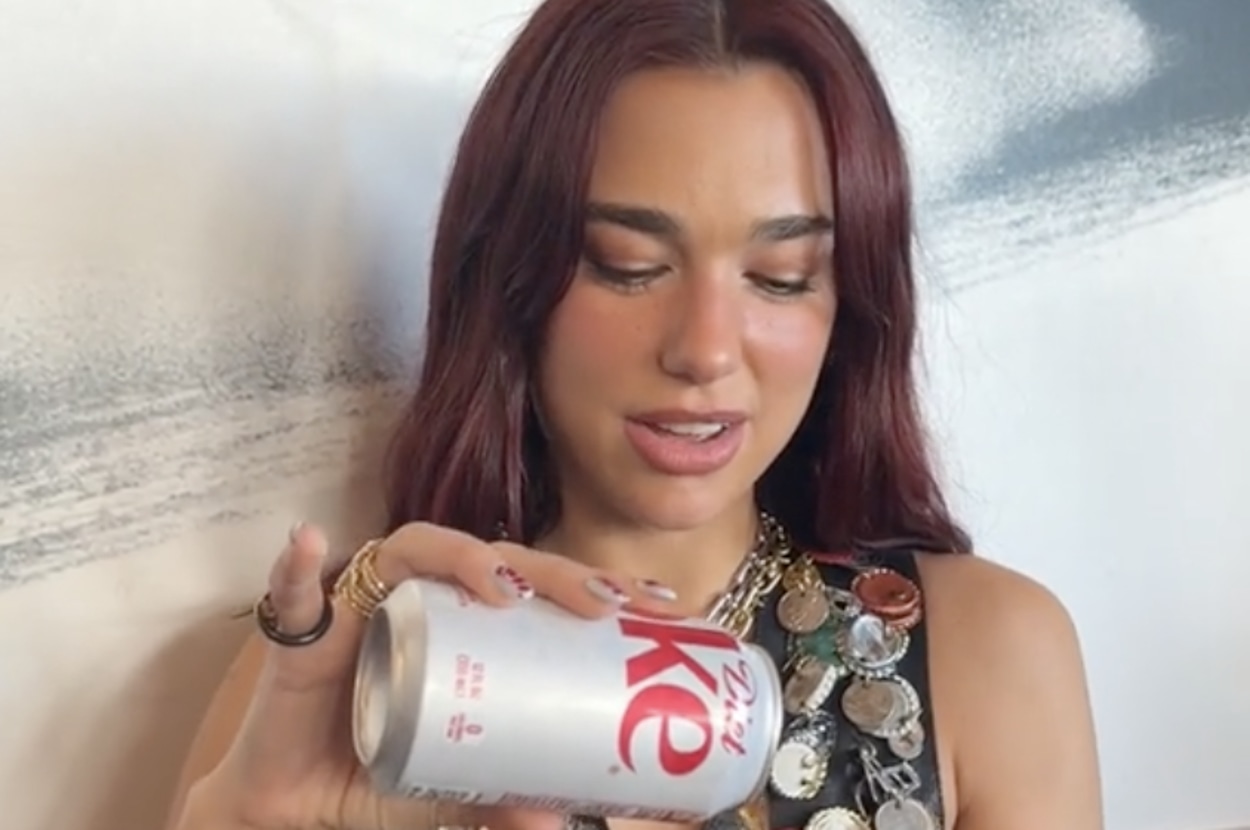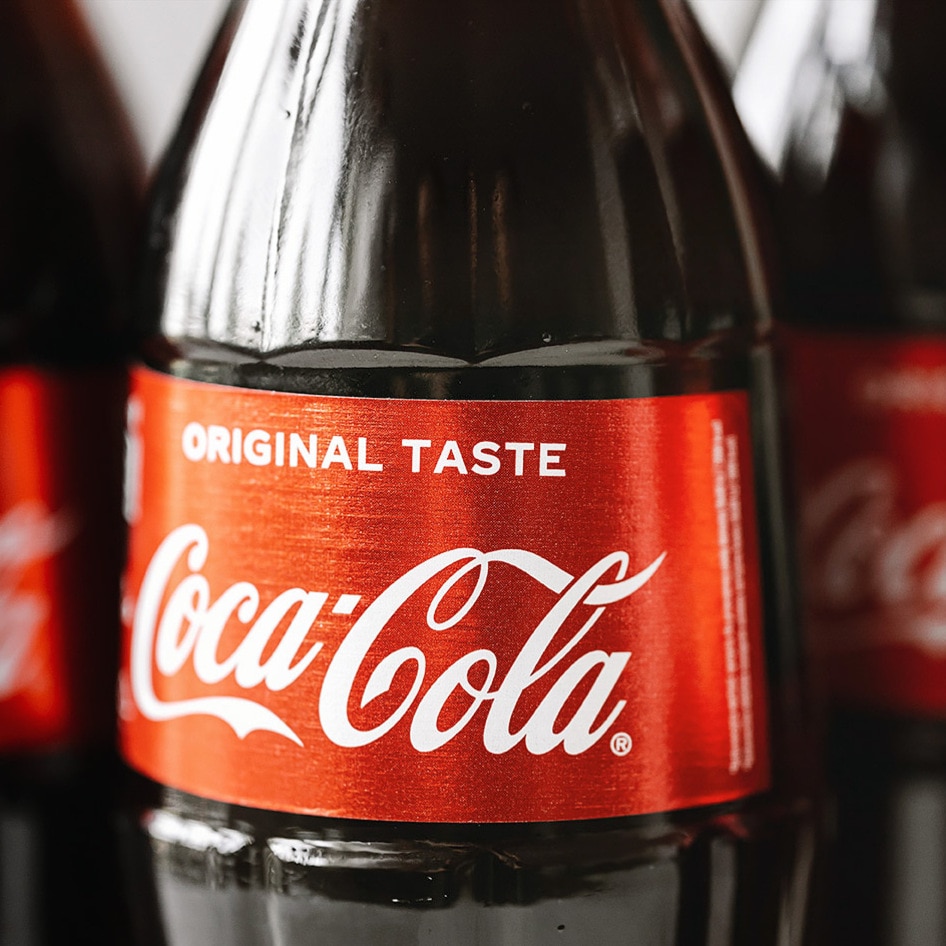President Donald Trump’s love for fast food is no secret. He has also been known to drink as many as a dozen cans of Diet Coke daily. When he returned to the White House earlier this month, one of his first orders of business was to reinstall the “Diet Coke button” in the Oval Office. The President even included commemorative bottles of Diet Coke in his inauguration gift bags.
 Joyce N. Boghosian | Official White House Photograph
Joyce N. Boghosian | Official White House Photograph
Trump supporter and billionaire Elon Musk is also a fan. In a recent post on his X platform, Musk said it had been one month since he had “a drop” of Diet Coke. “I want to share some of the changes I’ve observed in myself over that time,” Musk wrote.
“-My health is unchanged
-I’m less happy
-My one source of joy is gone
Thanks for encouraging me on this journey!”
Musk wrote in the caption, “JK I will never quit DC [Diet Coke].” He added, “Diet Coke inventor was a genius.”
JK I will never quit DC pic.twitter.com/TXerqoOfnL
— Elon Musk (@elonmusk) January 24, 2025
The soft drink is also making a splash on Max’s hit show Hacks. Jean Smart’s Deborah Vance character has her own soda fountain for the soft drink—both in her Las Vegas mansion and on her tour bus.
Younger generations are fans of the diet drink, too. Dua Lipa went viral last fall with a Diet Coke recipe that featured pickles, jalapeños, and their juices.
Soda in general is enjoying a surprising resurgence as consumers, tightening their budgets, are prioritizing affordable indulgences over pricier alternatives. Once declining at four percent annually, the category has rebounded. Coca-Cola and Dr Pepper reported increased soda sales last year, with total soft drink volumes rising 1.3 percent year over year, according to Evercore ISI.
 Dua Lipa
Dua Lipa
After years of declining sales tied to health concerns, including links to obesity and chronic diseases, soda appears to be reclaiming its spot as a go-to treat. Even warnings from the World Health Organization about aspartame being “possibly carcinogenic” haven’t deterred shoppers from reaching for sugary classics like Coke and Dr Pepper or those sugar-free options like Diet Coke and Coke Zero.
And with high-profile endorsements like Trump, Diet Coke has sparked widespread curiosity about what habitual consumption of diet sodas may do to the human body. While Diet Coke and other artificially sweetened beverages are marketed as healthier alternatives to sugary sodas, scientific studies reveal potential health risks tied to regular consumption. This includes heightened risks of cardiovascular disease, metabolic issues, dental health problems, and even neurological conditions.
Cardiovascular and metabolic health
Extensive research has shown that habitual consumption of diet soda may come with a range of health risks, often tied to aspartame, the drink’s artificial sweetener. Although these beverages are often chosen for their calorie-free appeal, studies suggest they could harm the body in ways that aren’t immediately apparent.
“Having one Diet Coke every day isn’t the worst health practice—but it isn’t the best either,” dietician nutritionist Lauren Manaker told Delish last year. “Will having one Diet Coke per day result in detrimental effects, especially if the rest of the day is filled with water drinking and balance diet eating? Unlikely.”

Still, a regular diet soda habit is linked to long-term health issues, and older individuals like Trump and Smart’s Vance character are at an increased risk of the impacts. One of the most compelling areas of research on diet sodas looked at cardiovascular health.
A 2021 study published in the Journal of the American College of Cardiology examined over 100,000 participants and found that those who consumed artificially sweetened beverages regularly had a significantly higher risk of cardiovascular events, including heart attacks and strokes. Specifically, the study found that participants who consumed more than one diet soda per day faced a 23-percent higher risk of developing heart disease.
Similarly, research from the American Journal of Clinical Nutrition found a link between artificial sweetener consumption and metabolic disorders, such as type 2 diabetes. The study indicated that artificial sweeteners might interfere with the body’s ability to regulate insulin, potentially leading to insulin resistance—a precursor to diabetes.

Artificial sweeteners like aspartame and sucralose have also been implicated in disrupting the gut microbiome, a collection of microorganisms essential for digestive and immune health. According to one study published in Nature, artificial sweeteners altered the gut microbiota of mice and humans, leading to glucose intolerance. These findings suggest that, far from being harmless, diet sodas may contribute to metabolic dysregulation when consumed frequently.
Neurological concerns
Emerging studies also suggest a potential impact on brain health. One study conducted by researchers at Boston University and published in Stroke found that people who consumed one or more artificially sweetened beverages daily had an almost threefold higher risk of developing stroke and dementia compared to those who avoided such drinks.
Another area of concern involves the neurotransmitter glutamate, which artificial sweeteners like aspartame can mimic. Some research has suggested that aspartame might overstimulate nerve cells, leading to symptoms such as headaches, migraines, and, in rare cases, seizures in sensitive individuals.
Impact on weight and appetite regulation
Diet sodas are frequently marketed as weight-loss tools, offering the taste of soda without the calories. However, several studies question whether this trade-off is effective. Research from the Yale Journal of Biology and Medicine found that artificial sweeteners may actually increase cravings for sugary or high-calorie foods. This phenomenon occurs because artificial sweeteners provide sweetness without the caloric reward, potentially confusing the brain and encouraging overconsumption of other calorie-dense foods.

BECOME A VEGNEWS VIP: Get exclusive product deals, freebies, and perks galore!
A separate study published in Obesity observed that participants who consumed diet soda daily were more likely to gain weight over time than those who did not. The study suggested that artificial sweeteners might alter satiety signals, leading to increased caloric intake throughout the day.
Dental health risks
Another surprising risk of daily diet soda consumption lies in its effect on dental health. While diet sodas do not contain sugar, they are still highly acidic due to ingredients like phosphoric acid and citric acid. The American Dental Association warns that the acidity of diet sodas can erode tooth enamel, making teeth more vulnerable to cavities, decay, and sensitivity.
 Pexels
Pexels
A study published in Operative Dentistry found that people who consumed diet sodas regularly had enamel erosion levels comparable to those who drank sugary sodas. The researchers emphasized that the acidity in diet sodas can soften enamel over time, leading to long-term dental issues.
Artificial sweeteners and long-term safety concerns
Artificial sweeteners such as aspartame, sucralose, and saccharin are key ingredients in diet sodas, and their long-term safety has been the subject of much debate. Although regulatory agencies like the FDA have deemed these sweeteners safe for human consumption in moderation, some studies suggest they may carry risks when consumed in large quantities.
A 2023 study in Toxicology Reports examined the potential carcinogenic effects of aspartame in laboratory animals. While the findings were inconclusive, the study raised questions about the long-term safety of consuming high doses of artificial sweeteners.
Another study published in Environmental Health Perspectives linked high doses of saccharin and sucralose to increased cancer risk in rodents. Although the study authors cautioned that the results may not directly translate to humans, they stressed the need for more long-term research to clarify these potential risks.
The psychological effects of diet soda consumption
Beyond physical health, drinking Diet Coke daily can also have psychological effects. Studies show that people who habitually consume diet sodas may develop a dependence on their sweetness. Research published in Appetite found that participants who drank diet sodas frequently reported stronger cravings for sweet foods than those who avoided artificially sweetened beverages.
 Getty
Getty
This dependence may be driven by the brain’s reward system. Artificial sweeteners activate the same pleasure pathways as sugar but may leave the brain craving additional sweetness to achieve the same level of satisfaction. Over time, this cycle can lead to overconsumption of other sweetened products, contributing to a higher overall caloric intake.
Is carbonated water a healthier stand-in for Diet Coke?
A new analysis published in BMJ Nutrition Prevention & Health found that fizzy water may provide a metabolic boost. Akira Takahashi, PhD, the study author, highlights that carbonated water’s perceived benefits, such as curbing hunger, speeding up digestion, and lowering blood glucose levels, have led to its reputation as a slimming aid. Yet, the underlying mechanisms remain unclear.
 La Croix
La Croix
To explore this potential, the author drew comparisons between carbonated water consumption and haemodialysis—a process that filters and removes waste from the blood when kidneys fail. Haemodialysis is known to lower blood glucose levels, partly due to the production of carbon dioxide during the process, which alkalinizes the blood. Similarly, the carbon dioxide in fizzy water is absorbed through the stomach lining and converted into bicarbonate in red blood cells, a reaction that activates enzymes responsible for glucose absorption and metabolism.
During haemodialysis, about 48,000 milliliters of blood pass through the dialyzer over four hours, resulting in 9.5 grams of glucose being used. While this demonstrates how carbon dioxide influences glucose metabolism, the author cautions against equating this impact to what fizzy water consumption could achieve.
“Given this minimal glucose reduction, the impact of carbon dioxide in carbonated water is not a standalone solution for weight loss. A balanced diet and regular physical activity remain crucial components of sustainable weight management,” Takahashi states.
Moreover, the analysis underscores the potential digestive side effects of carbonated water. “Drinking carbonated water can have some effects on the digestive system, particularly for individuals with sensitive stomachs or pre-existing gastrointestinal conditions,” Takahashi notes. Common concerns include bloating, gas, and, in some cases, worsening symptoms associated with disorders such as irritable bowel syndrome or gastro-oesophageal reflux disease. He emphasizes that moderation is essential to balancing potential metabolic benefits with digestive comfort.
The study also points out that more research is needed to fully understand the relationship between carbonated water and weight management. While clinical observations during haemodialysis offer some insights, they cannot directly translate to the effects of consuming fizzy water. “Moderation is key to avoiding discomfort while still enjoying the possible metabolic benefits of carbonated water,” Takahashi concludes.
For more plant-based stories like this, read:
JUMP TO ... Latest News | Recipes | Guides | Health | Subscribe








